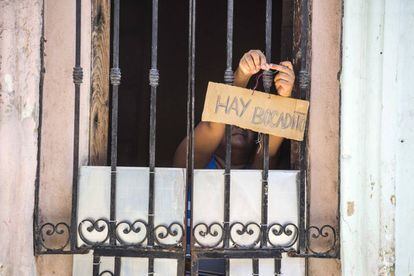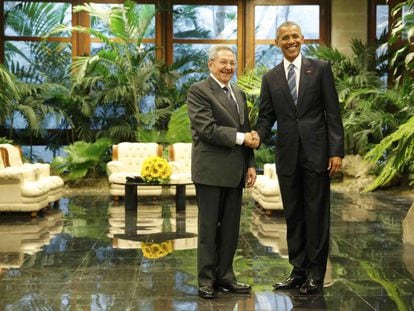Cuba announces plans to legalize small- and medium-sized businesses
The Communist Party says it will take a new step toward economic liberalization


Cuba is planning to legalize small- and medium-sized businesses, according to a Communist Party progam that went on sale in the Caribbean island on Tuesday. The document explains that the government will allow “small family-run businesses” and “small- and medium-sized private enterprises.”
The bulletin was published after a series of debates that took place in Congress in April. Though it lacks details and concrete dates, the announcement means the administration will be taking a significant step toward liberalizing the economy.
Though it lacks details and concrete dates, the announcement means the administration will be taking a significant step toward liberalizing the economy
Most televised speeches during the debates defended socialism but behind closed doors the main topic of conversation was opening up the system: how, at what speed, at what costs to the maintenance of the status quo of this single-party socialist regime. The conference did not share its conclusions with the public until the publication of the program, which evidences the lingering ambivalent attitude toward private business.
The document says there is “the need to mobilize non-state resources... to revive production and services and for the modernization of infrastructure and the workforce, necessary for development.” “The recognition of non-state forms of property [ownership] and management” can be seen as “contributing to the liberalization of productive forces.”
Sign up to our newsletter
EL PAÍS English Edition is launching a weekly newsletter. Sign up today to receive a selection of our best stories in your inbox every Saturday morning. For full details about how to subscribe, click here.
Developing private business has been President Raúl Castro’s main initiative since he took office in 2008. He has slowly opened up the country to entrepreneurship and now there are half-a-million sole traders in Cuba. Some, such as those running restaurants and hostels, even have employees, although they are not legally recognized as a businesses. Bringing an end to this taboo may facilitate the growth of the private sector restricted as it is by bureaucracy and the lack of a free market to fuel production.
Cuban business owners do not have permits to import. They must purchase raw materials from state-owned shops or on the black market. Those who have more resources may get airplane deliveries: travelers who bring them goods from abroad. Meanwhile, high demand for raw material in the private sector leads to shortages and inflation on the domestic market. The future legalization of small- and medium-sized businesses – unthinkable until the thawing of relations with the US in 2014 – will open the door to the rationalization of the private market in Cuba.
English version by Dyane Jean François.












































